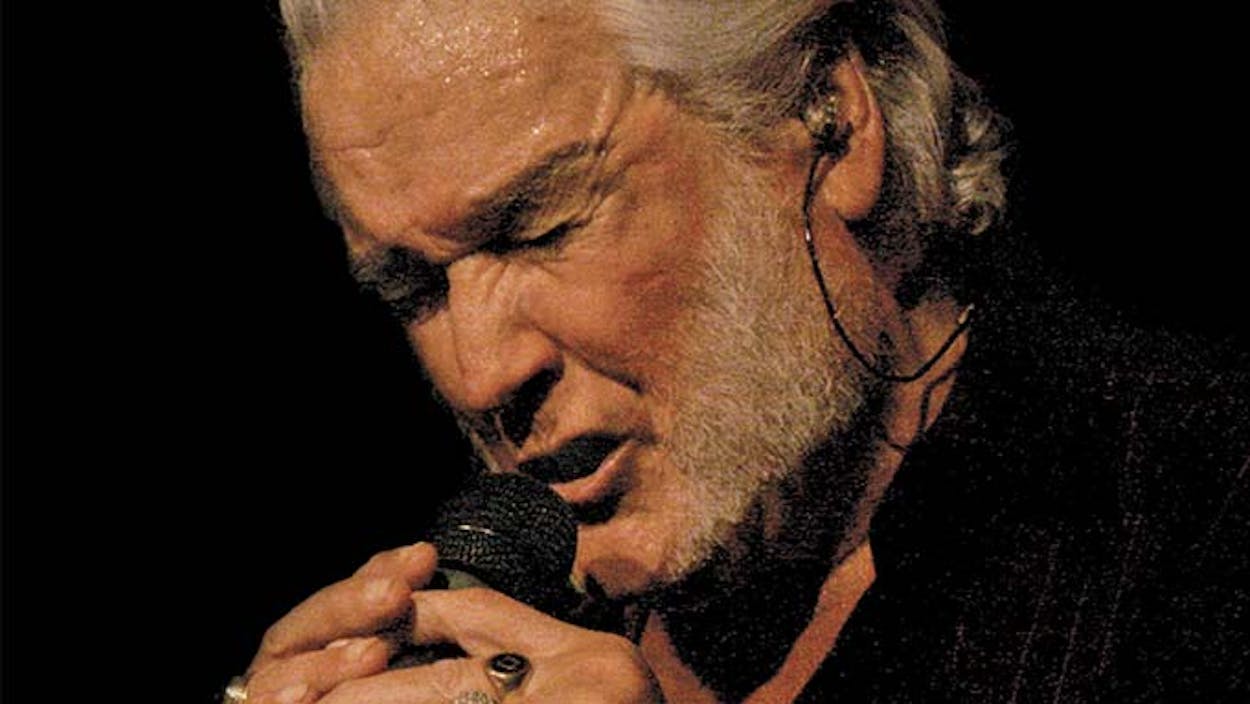Thirteen years ago Van Morrison released Down the Road, an album that looked back longingly at the music of his youth. The intent was apparent right there on the cover, a photo of a record shop window display featuring more than a dozen specimens of vintage vinyl by the likes of Lightnin’ Hopkins, Ray Charles, and Blind Lemon Jefferson—Morrison’s childhood heroes all. One of the album’s better songs was a good-humored lament about the state of contemporary pop with the curious title “Whatever Happened to P. J. Proby?” which must have had many of Morrison’s younger fans scratching their heads. It’s tough to wonder what ever happened to someone you’ve never heard of in the first place.
Once upon a time, though, plenty of people had heard of P. J. Proby. In 1964 the 25-year-old Houston-born singer left America for England, where he quickly achieved the fame that had eluded him at home. He had a few Top 20 hits and secured his place as a footnote in rock history by recording “That Means a Lot,” a song written by John Lennon and Paul McCartney that the Beatles didn’t think was worth releasing under their own name.
Proby inspired a terrifying frenzy among young girls, which is one reason his fame proved fleeting. The British establishment was unnerved by the sexual energies unleashed by Beatlemania, and Proby’s appetite for excess was excessive even by rock stars’ standards. The final straw, for many, was a series of onstage “trouser-splitting incidents” in 1965. His career never recovered, descending into decades of appearances in Elvis Presley tribute shows, beneath-the-radar excursions into gospel and synth-pop, and the occasional oldies gig for the faithful.
And that was more or less what had happened to P. J. Proby when he heard Morrison’s song, months after its release. “I hardly ever listen to music, so I didn’t know about it,” says Proby from his home in the English village of Pinvin. In late 2002 or 2003, when he was in the States visiting his sister in Alvin for Christmas, she asked him if he had heard his namesake song. “And I said, ‘No, I ain’t heard it, sister. Put it on.’ ”
Proby claims he wasn’t offended that the song cast his career in the past tense. “I thought it was pretty funny,” he says. In fact, in 2007 he went to a Morrison concert in Dallas and managed to chat backstage with the star. “We had a big laugh,” he says.
That good vibe must have stuck with Morrison, because last year, when he was putting together a duets album, he asked Proby to collaborate on a remake of “Whatever Happened to P. J. Proby?” It’s one of the highlights of Duets: Re-Working the Catalogue, which came out in March. The night before we spoke, Proby had joined Morrison onstage at London’s Royal Albert Hall to reprise the song one more time, though he hopes it’s not the last. (“I just wrote a thank-you letter to Van’s management team.”)
Proby doesn’t get back to Texas that often. But he says his music has always been rooted in the years he spent here. “My mother sang around the house,” he recalls. “From the age of one, two, three, she taught me to sing harmony.”
The real revelation for him, though, was Houston’s thriving R&B scene—the kind of scene a young Van Morrison, growing up in Northern Ireland, could have admired only from afar. “The Fourth Ward was N—-Town,” Proby says, with little regard for the finer points of contemporary discourse. “No white boy went down there, if you didn’t want to get called a n— lover. But I didn’t give a damn about that! Almost everybody who worked on our farm in Crockett was colored people. At twelve noon they used to lay me down on a pallet under a pecan tree, and all those old colored women would sing hymns and gospel music. That’s how I learned about gospel music. From the colored people on the farm.”









